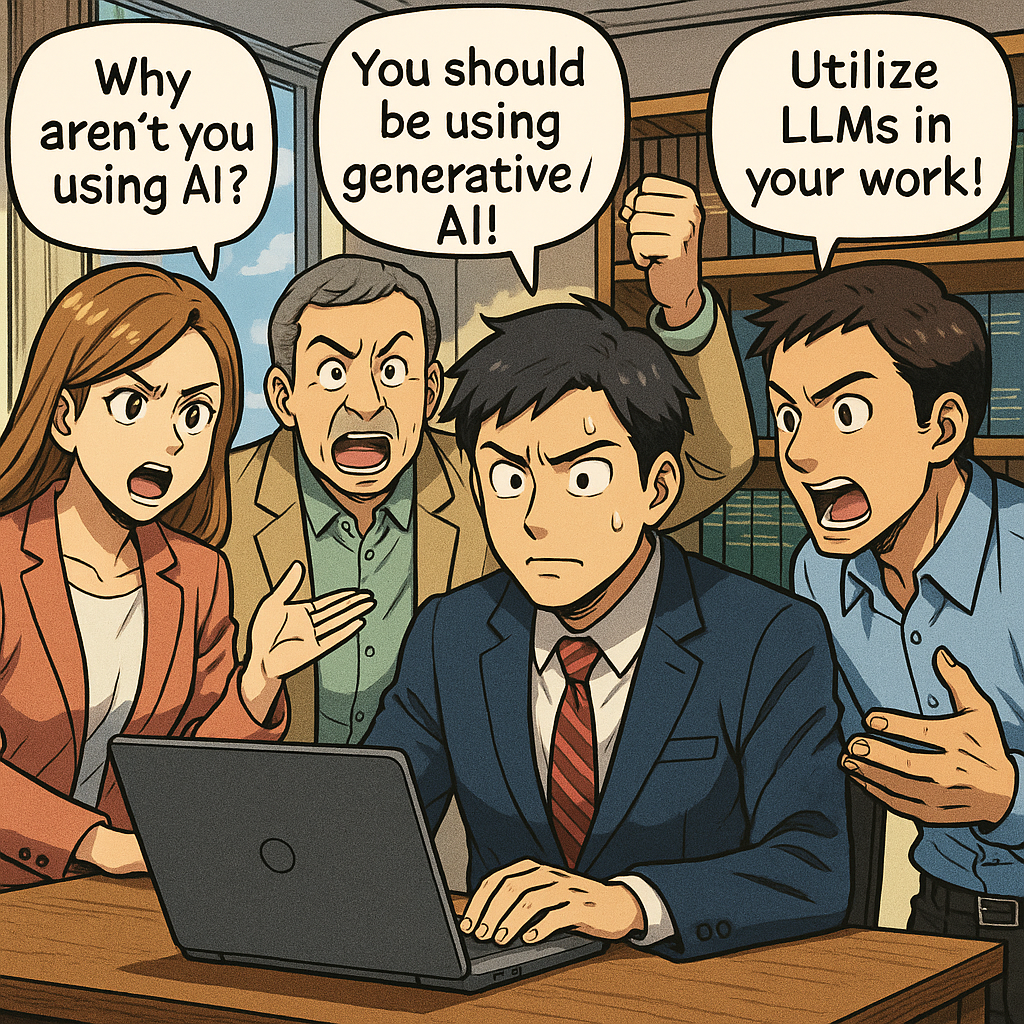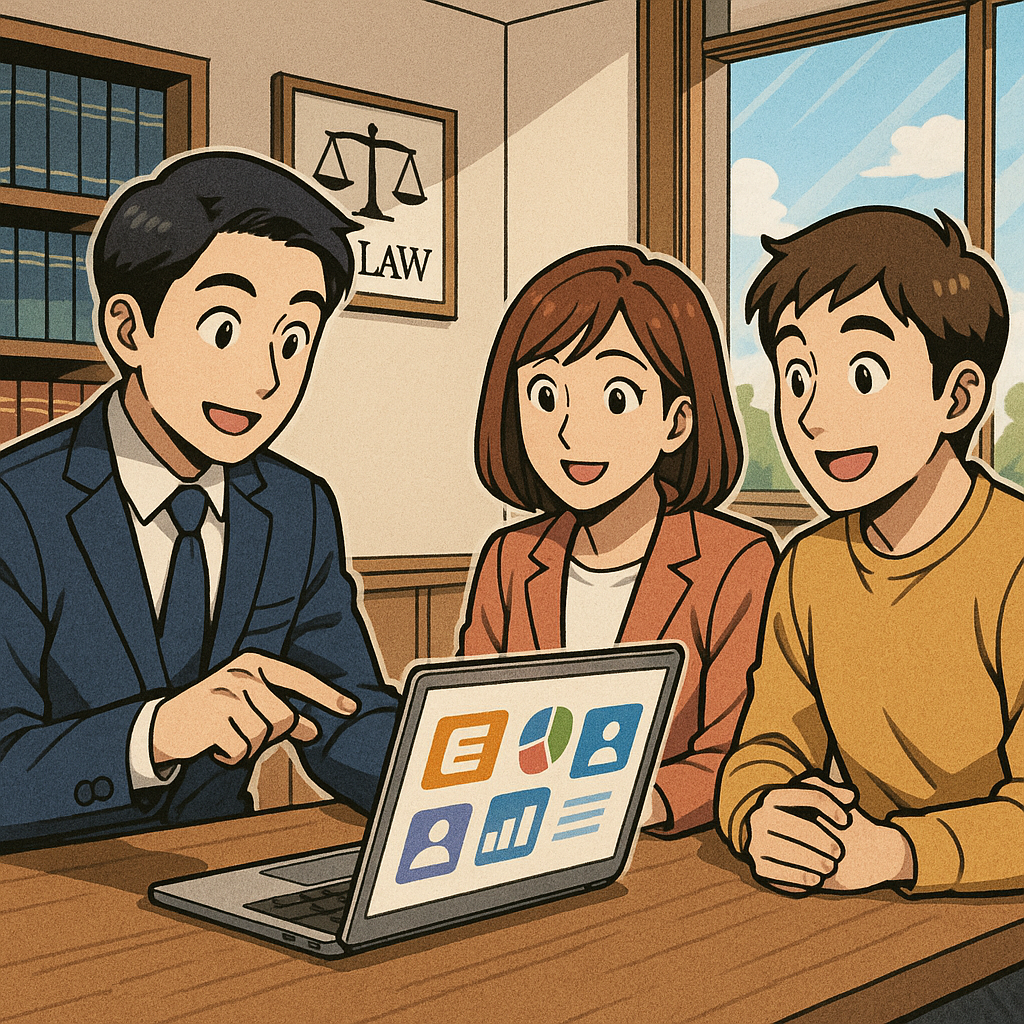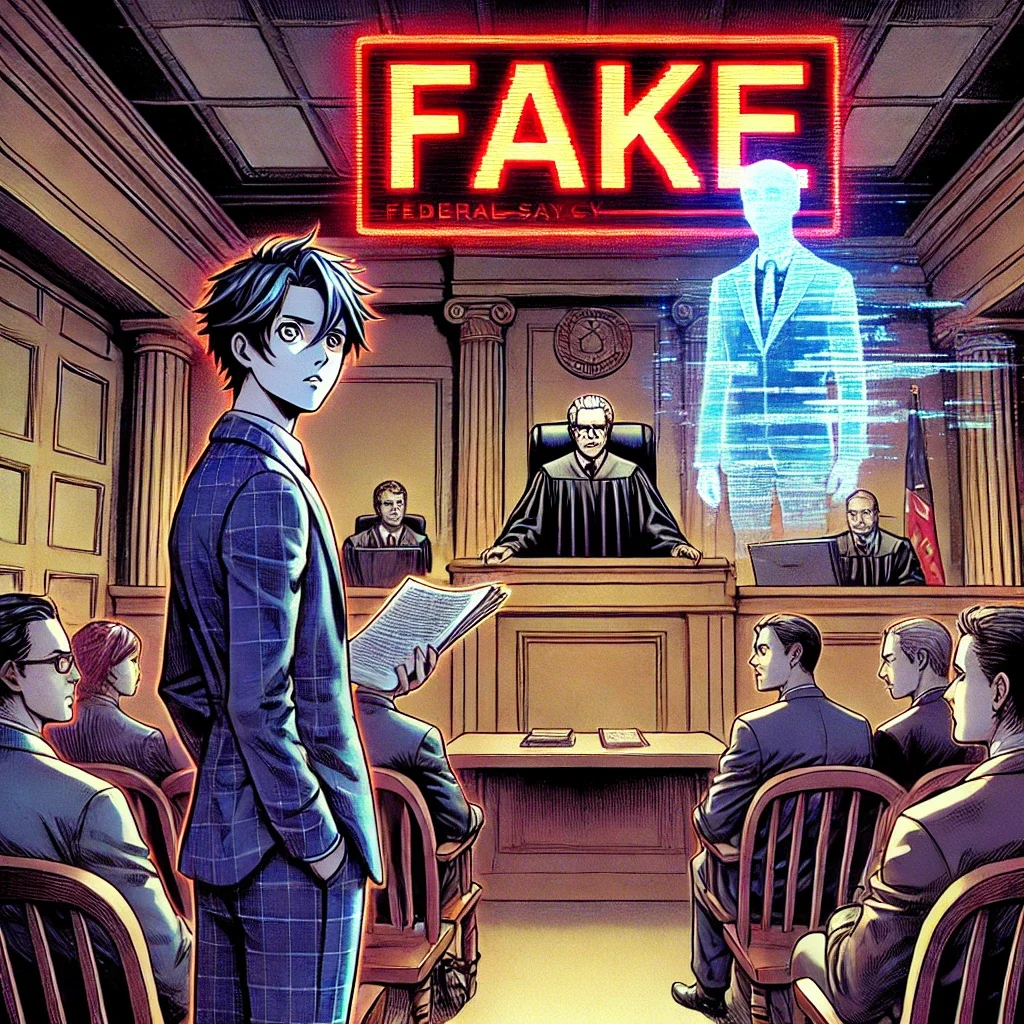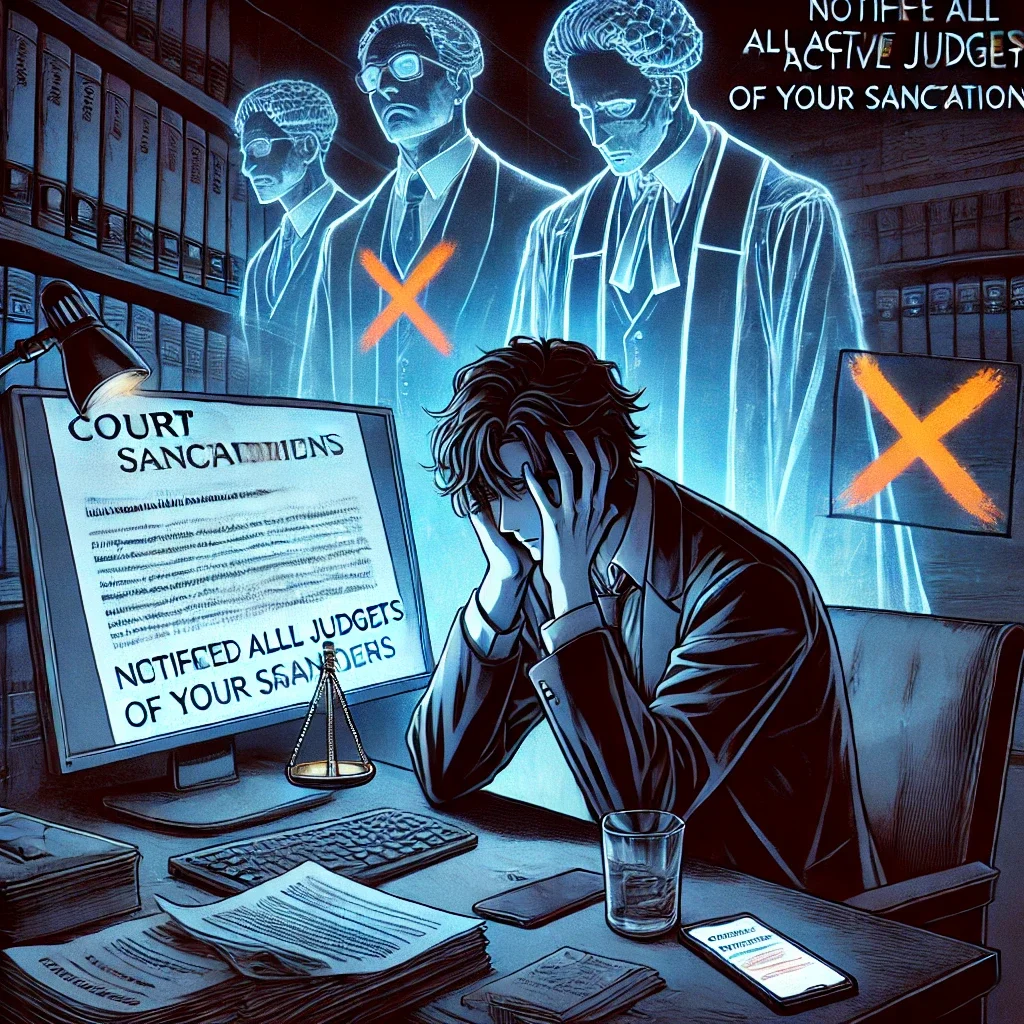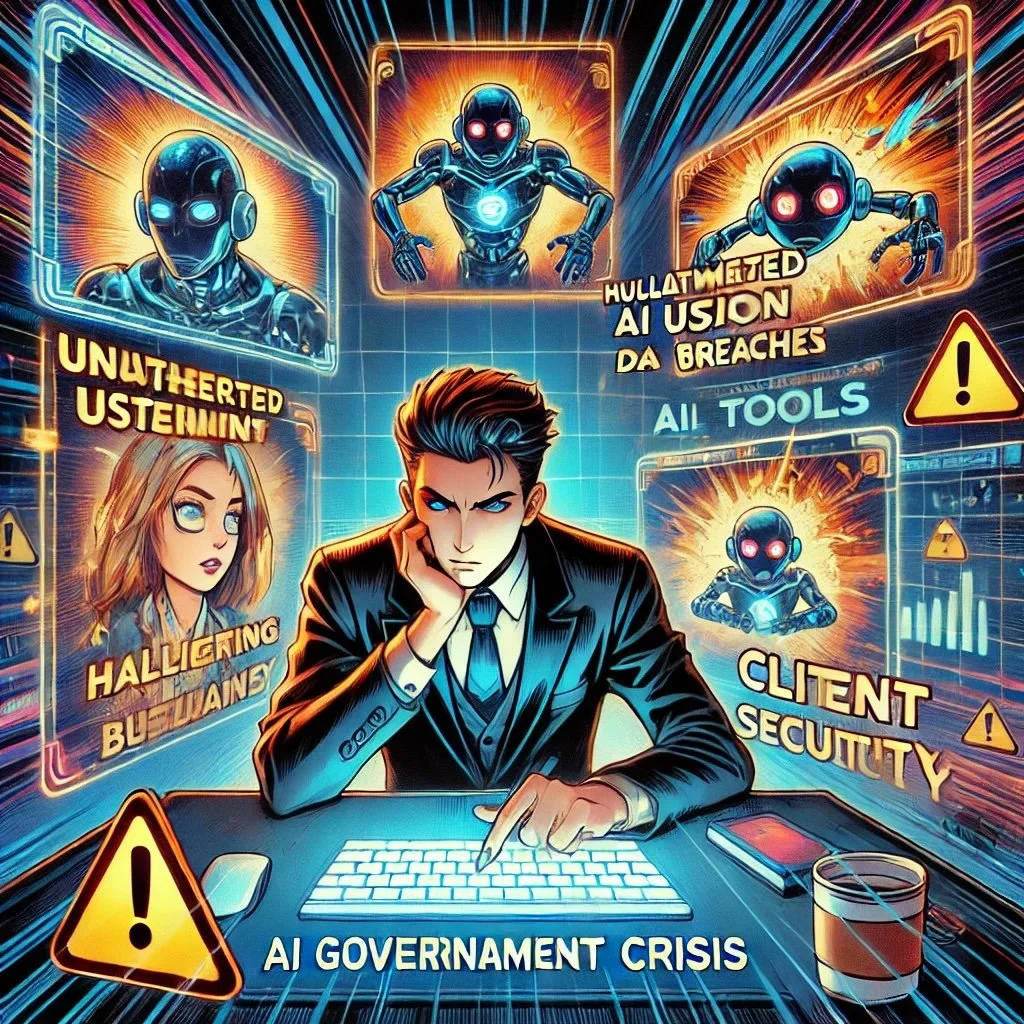Transcript
[00:00:00]
Introduction
Michael D.J. Eisenberg: Episode 107. AI Demand pro. Travis Easton on fast, effective settlement drafting.
Our next guest is Travis Easton personal injury journey and co-founder of AI Demand Pro. Travis shares with us his groundbreaking insights on leveraging AI for settlement demands, essential legal tech tools and practical strategies that transform law firm efficiency. We discuss this and much more.
Enjoy.
Ad Read #1: Consider Giving The Tech-Savvy Lawyer.Page Podcast A Five-Star ⭐️ Review!
Michael D.J. Eisenberg: Have you been enjoying the Tech Savvy lawyer.page podcast? Consider giving us a five star review on Apple Podcasts or wherever you get your podcast feeds.
Introducing Our Guest!
Michael D.J. Eisenberg: Travis, welcome to the podcast.
Travis Easton: Thanks, Michael. Nice to be here. Appreciate it.
Michael D.J. Eisenberg: I appreciate you being here. And to get things started, please tell us what your current tech setup is.
Our Guest's Tech Setup!
Travis Easton: Yeah, so we're a personal injury law firm here, and so [00:01:00] we've been with Case Peer, which is a CRM that we actually were one of their initial customers of, I think seven, eight years ago.
So that's what we used to kind of run our law firm, and it's been great. And then we use AI Demand Pro to write mm-hmm. Settlement. Mm-hmm. Cool. They've been awesome that, and we're gonna talk a little bit more about that since we're one of the founders of that. So a company called Alert, which helps us with, it's not really necessarily tech, but that's what brings in a lot of our leads and things like that.
Cool. So we can
Michael D.J. Eisenberg: get more cases. Well, tell us about your hardware. What kind of computers are you using today? What's on your desk there?
Travis Easton: We're Apple people.
Michael D.J. Eisenberg: Okay. Oh, you know Max. Excellent. Do you know what you're using? A Mac Mini. A Mac Studio. I have a, I have a
Travis Easton: MacBook Air. I just got the new MacBook Air that came out this year.
So
Michael D.J. Eisenberg: Nice.
Travis Easton: We usually upgrade every couple years. Me and my brother are pretty attuned to all the new Mac products that come out every year.
Michael D.J. Eisenberg: Excellent. And do you have any other devices, like for instance, with your smartphone,
Travis Easton: iPhone,
Michael D.J. Eisenberg: and do you keep up to date on that?
Travis Easton: I'm a part of the yearly renewal program, [00:02:00] yes.
So, yep. Every year. Same here, A new iPhone.
Michael D.J. Eisenberg: Same here. It's interesting, I was at the A BA tech show recently and they talked about how only 6% of law firms use Apple computers, which seems a little bit weird to me, but other hand here I am listening to you. It's like we're an Apple computer office.
Travis Easton: Yeah, no, I think we are one of the rare ones.
I would say there's more and more that are switching over. But when we did initially make the switch over a number of years ago, the biggest thing was my dad who had started our law firm, was still on Word perfect. And so having, I don't, you know, I wasn't at the firm at that time. I think I was still in college, but having to go from word perfect to word.
That there was some transformation conversion process and it was pretty terrible. So I think that was the hardest part when they, they switched over from PCs to Max. But since then it's been great.
Michael D.J. Eisenberg: I think a lot of the older attorneys, they had macros already built forward. Perfect. And they didn't wanna reinvent the wheel.
Travis Easton: Yeah.
Michael D.J. Eisenberg: And so, well, I mean, I think
Travis Easton: when my dad started, it was a [00:03:00] typewriter, to be honest. So I, I know it was for sure. But I'm saying even when we started our firm and kind of went out on his own, we definitely had a typewriter in the office. So that's just, it's pretty crazy to think how far we've come.
Michael D.J. Eisenberg: I tell everybody that the best class I took in high school typing.
Travis Easton: Yeah,
Michael D.J. Eisenberg: because I've gotten, be able to get so much done because I can type.
Travis Easton: Makes a huge difference. That's for sure.
Michael D.J. Eisenberg: Are there any other tech devices that you use that help you in your day-to-day work?
Travis Easton: Yeah. I mean, it's kind of related, but Apple TVs right? For demonstrations. Yeah. Things like that. When I'm, when I'm giving demos or have a group setting and we want to mm-hmm.
Present something that's kind of how we use it. We use an Apple TV and flash it up onto the computer. iPads are also very big as well. We're a trial attorney firm. Mm-hmm. And so we use some technology that, there's an app called Trial Pad and we've utilized that at trial and it's great with iPads and just kind of as far as your exhibits and everything you wanna present.
And so just makes your life a lot easier in that regard.
Michael D.J. Eisenberg: So you know Brett Bernie, right?
Travis Easton: I don't know Brett, to be honest.
Michael D.J. Eisenberg: You need to talk to Brett [00:04:00] Bernie. Who does in the news podcast with Jeff Richardson. They are all in on. That software package, and I know Brett, and someone from Lit Software came and did a presentation or two at the a BA tech show this year, so I know how well regarded that product is. Do you use an Apple pencil to help you with that or is it all,
Travis Easton: I mean, sometimes my brother, to be honest, is better with the Apple pencil.
I'm mm-hmm. I'm usually a finger type guide, but I know you can use it with that as well. But yeah, I'm usually, I'm not as adept with the Apple Pencil.
Michael D.J. Eisenberg: Using an Apple keyboard?
Travis Easton: I have, yeah. It depends on what, on the task I'm doing, but yeah, for things like trial padd, I'll usually throw the keyboard on there.
Cool.
Michael D.J. Eisenberg: How do you like that in comparison when you're using your Mac Air versus your, your iPad?
Travis Easton: I almost always use a computer for things. You can't use the trial, at least the last time we used it a little bit ago, it was just an iPad app you couldn't do it on. Mm-hmm. I don't know if they have plans to change that at any point, but anything else I'm doing, I try to always use a computer.
I'm just more familiar with that for things like typing and stuff like that.
Michael D.J. Eisenberg: Well, [00:05:00] actually, let me rephrase the question a little bit. How do you like using the Mac error versus the iPad? In the sense of typing and data input
Travis Easton: I'm much quicker on the computer, on the Mac and book error. Mm-hmm. Yeah.
I'm much more familiar with that and for what I do. Mm-hmm. The things I do on a daily basis, the computer is much quicker and better.
Michael D.J. Eisenberg: I tried shifting over to the iPad a little more and it's just not the same. Yeah. I want the power of a computer or I'm multitask a little bit more and I just feel a bit naked when I'm trying to use the iPad.
Travis Easton: The computer, it just works a lot better.
Michael D.J. Eisenberg: Yeah. Yep. Yep. Same here. Well, let's get into the questions.
Question #1: What are Travis' top three AI strategies for enhancing day-to-day legal tasks? How can lawyers integrate them seamlessly into their workflow?
Michael D.J. Eisenberg: Question number one, what are your top three AI strategies for enhancing day-to-day legal tasks? How can lawyers integrate them seamlessly into their workflow?
Travis Easton: Alright, well let's get into it. So to me, what, as I kind of thought about this and have pondered it, I think that the way that AI should be looked at and utilized in the legal field can help in kind of three ways. One, you wanna make life easier. Two, you want to see if you [00:06:00] can utilize it to increase revenue.
And three, you want to use it to improve your work product. Right? To me, as a lawyer. If you can have an AI product that can capture all three of those, or at least some of 'em. Mm-hmm. And I think it's a winner. And that's something that should definitely be looked at and explored to see how you can utilize it and put it into your practice.
So going to the first one, right? How do you make life easier? And like I mentioned earlier, we've created an a company called AI Demand Pro. Mm-hmm. That's why the main that we utilize in our practice right now that relates to ai. So I am gonna reference that from time to time throughout these things.
Absolutely. Sure. So forgive me if I kind of talk about it quite a bit, but that's my best example of how I can kind of explain these things to you. So our firm is a personal injury law firm. We've been around for 30 plus years. My dad and three brothers and I work together here. We have, I think, seven associates now that work for us.
With us and they're great. And then we have a demand writing department. And so the [00:07:00] way that our firm is made up is, you know, in a personal injury case, you sign up the client, they go and do their medical treatment, and then from there you gather all the documents, you gather the photographs, you gather all the data, and you would have your demand writing department summarize all of that and put it together in what is called the demand package.
Once that is ready, then it goes to the attorney's desk. He reviews it, edits it, makes it better, and then talks it over with the client, and then when it's ready, it goes out the door and you send that to the insurance company. And that's kind of the lifeblood of a personal injury law firm. Or at least for the majority of 'em, some just go straight to litigation.
But the majority, this is kind of the crucial first step. The insurance company responds and accepts your offer, or you enter into negotiations and you're able to, you know, resolve it and settle the case is done. If you're not able to, that's when you would then file the lawsuit and go into what we refer to as litigation, right?
What we've been able to do in our practice is create this company called AI Demand that we basically built in-house for our firm, and it takes all of those [00:08:00] components. We put it into our software, and then the AI basically writes a settlement demand. In less than 30 minutes. So it's taking what would've taken hours to days for that demand, right?
Or an attorney and turns it into a 30 minute to a couple hour process, depending on, you know, the size of the demand. And so when you have that in mind, right, when we talk about this first one, making it easier. My sister is our head demand writer and has been leading that department for the past 15 years.
It's amazing that she stuck with that job because it's a very tedious, it's a very boring job. You're literally just summarizing medical records and typing them into a computer all day, and so it was our highest turnover position at our firm. It's usually college graduates, and then they try for a little bit, and then they're like, I want to go do something else, and so it was just a tough position to keep fill.
So what has happened since we've installed this program and created this, you know, AI Demand Pro within our business is not a single [00:09:00] demand writer has left because the process is so much easier, it's so much more rewarding for the demand writers. And so it took it from them having to summarize hundreds to thousands of medical pages on each case down to now they are reviewing the output, they are reviewing the document.
They're just cross referencing, checking it. And so it just has made their life much more enjoyable. And so I think when you're looking at an AI product, whether it's for discovery, whether it's, you know, for depositions, what, there's so many different products out there, those are kind of the ones that really touch home to personal injury.
You want to look for a product that can make your life easier, right? Mm-hmm. Make it, you don't have to do as much, because I think that's one of the beautiful things of machine learning. Right?
Michael D.J. Eisenberg: Well, I think one thing that you keep. Saying that I really wanna emphasize to the listeners that you do have to review your work
Travis Easton: a hundred
Michael D.J. Eisenberg: percent and make sure that you don't make any mistakes.
And you know, quite honestly in our conversation here, you've sort of just automatically bled into question number two. You know, how [00:10:00] does AI de demand pro leverage ai, streamline legal processes more effectively than traditional methods? And what are the key benefits of this approach? I think you answered that beautifully.
That being said, I'm gonna take it back a step. Yep. Going back to question number one, can you give us any examples of how you do use ai? I mean like actual real time examples in the sense of, you know, particular product to do x, Y to Z.
Travis Easton: I guess regarding your question, you know, I mean, you mean apart from like AI Demand Pro or something like that?
That,
Michael D.J. Eisenberg: yeah, yeah, yeah, yeah, yeah. I didn't know if you had any other examples or is your Bailey with AI really focused on AI demand Pro.
Travis Easton: The majority of it is I will use chat GBT or Quad if I have a specific question or if I have a specific task, I'll use it for email. Sometimes I'll use them for those things.
But the majority of our focus has been mm-hmm. Developing this and on utilizing this AI because it's so encompassing within the personal injury law firm. Right. And the other thing that, you know, we can reference this later when we talk about the pitfalls, [00:11:00] but you have to be very careful. Not only, like you said, to review your work, but before you upload any sensitive data, right, that in return have like medical records or things should not be uploading anything like that just into Chad gbt, right?
That's on the internet, right? What we've been able to do is safeguard to set up so many privacy blockades and just things like that within our site when we developed AI Demand Pro so that you can take those medical records and upload them and they're still HIPAA compliant, they're still safe ever. All of your data is double encrypted, and so for that reason, I, to be honest, I am very cautious utilizing AI for anything that.
Would, I would deem clients sensitive, or that should not just be uploaded to an nor ordinary site like chat, GBT or Claude.
Michael D.J. Eisenberg: Well, could you give us an example of how you might use one of those two AI to help you write an email? For what purpose might you do that?
Travis Easton: Yeah, so what I would usually do [00:12:00] is I would take the reply, the response from the person, you know?
Mm-hmm. If it's, if I'm responding to someone, I might take the response, put it in there, and then. Either put a little thing, like a little response of what I'm thinking I want it to be. Mm-hmm. Or I would give it a prompt, right? Like, Hey, I'm looking to respond in this way to this email. Could you drop to, for me, I think the, one of the best ways is that you, it just saves you so much time.
And to be honest, brain power. Right? And having to really focus in, because we only have so much brain power, we can right muster up throughout the day. And so if you can unload some of that off onto the AI model. I think it helps tremendously. And so basically you can get the gist and the tone of what you're trying to say and put it in there, and then it can spit out its first version and then you can either, you know, give it some more prompting and tweak it further from there.
Or you can just take it and then you edit it and finish it up and make sure it's the tone and the work, you know, the verbiage that you want.
Michael D.J. Eisenberg: So I'm assuming that you take out any PII from the response email [00:13:00] that you get before you pop it into
Travis Easton: Yes.
Michael D.J. Eisenberg: Claude or chat bt. Yeah, yeah,
Travis Easton: yeah. No personal information or anything like that.
Michael D.J. Eisenberg: Yep.
Ad #2: Consider Buying The Tech-Savvy Lawyer a Cup of Coffee ☕️ or Two ☕️☕️!
Michael D.J. Eisenberg: Pardon the interruption. I hope you're enjoying the Tech Heavy Lawyer page podcast. As much as I enjoy making them consider buying us a cup of coffee or two to help toray some of the production costs. Thanks and enjoy
and. I've received emails from a handful of parties over the years where quite honestly, , their communication may not have made sense or wasn't very clear.
And I will copy that. I will take out the p if there's any pi, I'm say, can, can you one tell me what is this person trying to convey to me? And two, draft an appropriate response. And it saves me some brain power there. 'cause sometimes. You get from certain parties, emails that really aren't clear, and that's me being polite.
Yes.
Travis Easton: A hundred percent.
Michael D.J. Eisenberg: Well, let's get into our last question.
Q?#3: What are the top three potential pitfalls or red flags that users of AI tools like AI Demand Pro should be aware of to ensure responsible and effective use?
Michael D.J. Eisenberg: What are the top three potential pitfalls or red flags that users of AI tools like AI Demand Pro should be aware of to ensure responsible and effective [00:14:00] use?
Travis Easton: Yeah, so there's several. We've kind of referenced a couple of up to date. So the first one I wanted to talk about was, no AI company should be using the data that you are feeding it to learn from it.
So that should be the red flag when anybody is looking to sign up, you know, for an AI service mm-hmm. Or an AI connect. One of the questions you should be asking is, do, are you using my data to train your AI model? The biggest thing there is the privacy, right? If you know, if they are using their data. To train their AI model, and let's say they put in something about Joe fracturing his leg.
Then what happens is now that LLLM model will have that data that Joe fractured his leg actually baked into it. And so you're just giving up that privacy of that client or that person of whatever you fed into it and it's going into the system and now it's there forever. I think first thing is just make sure that no one is using your data to train their model off of first and foremost.[00:15:00]
Yeah. Did you have a question?
Michael D.J. Eisenberg: Well, so like I'm looking at your website and I see, you know, there's a clear chart here that says HIPAA compliant, which I'm presuming is in part, you know, not training off of the data that you put into it. Correct. Is there anything that you can think of that the listeners should be aware of and looking for when they review a site like AI Demand Pro?
Like what key? Bits should they be seeing that says this is going to be something that is not gonna be learned from.
Travis Easton: I don't think anybody is necessarily gonna say that specific thing on the website. When you're in a demo. When you're in a conversation. Mm-hmm. Looking to use it. Or maybe the frequently asked questions.
That is when you would want to bring it up. The HIPAA compliance, of course, is, that's kind of a separate topic. That just means that your medical data is safe and secure and, and being safeguarded according to the HIPAA compliance rules. But whether they're using it, it could be unrelated to medical data, right?
And so, right. You just wanna make sure they're not utilizing your [00:16:00] data. To train their AI model. And so I would just make sure you're asking that question.
Michael D.J. Eisenberg: So the reason why I asked you specifically about HIPAA was because going through your site, and I've seen others and I don't, products and companies like yourself say, Hey, we're not gonna learn from your data, or The AI we use is not gonna learn.
Travis Easton: We probably should. We should probably put that on there, but I think it's because most people don't even know to ask that,
Michael D.J. Eisenberg: which quite frankly, don't You think that kind of violates, was it model Rule one, common eight, that they'd be reasonably up to date on the technology that they use? Probably, yeah. I mean,
Travis Easton: yeah.
Michael D.J. Eisenberg: I mean,
Travis Easton: they should, right? They should. But such a new frontier. I mean, if you go to any of these conferences, everything is ai. It seems like a quarter of the talks and the, the speeches are on AI or something related to it. Right. Everybody is just trying to get a grasp around it as best they can. But yeah, I think the common lawyer still is.
Very uneducated regarding these things.
Michael D.J. Eisenberg: The problem is they [00:17:00] need to be better educated because the excuse of like the attorney outta the Southern District of New York of using Chachi BT to help draft his response brief without checking it. Yeah. And then, hey, the judge is like, are you sure these legit, these cases?
And he goes back and asks Chachi, BT, are these legit? Of course Chechen, he says, of course they're legit. Why would I not tell you the truth?
Travis Easton: Yeah.
Michael D.J. Eisenberg: So that was one.
Travis Easton: So that, so your, your great example there brings us to hallucinations, which is what happened in that case, right? Right. And so you need to be aware of hallucinations and so going out and asking Chad, GBT, Claude, any of these things, you are at significant peril of it hallucinating.
And so when we built AI Demand Pro, we have done as much work as we possibly can to make sure that we are not hallucinating. I'm not the engineer behind it, right? When we built this, but the way I explain it to people that probably aren't the most tech-minded either, is we have built a, what I call a closed.
[00:18:00] System. Right? And so we are not going out into the internet when the medical records say, this person's gonna get a back surgery, right? And saying, Hey, WebMD, can you tell us what you know about the back surgery? And that's where people get into trouble when they go into chat GBT, and they ask it things related to legal questions.
It's going out to the internet and gathering all of that information and stuff. And sometimes it's gonna be accurate and sometimes it won't be. And sometimes it's gonna what we call a hallucinate, just make things up. That's very scary if you are an attorney, and it goes back to your earlier about always double checking the work and not double checking it with chat GBT when you get called out on it.
Right? And so our system is closed. It does not go out and find any of that information, and it only has. We have put in there, which are things like the California vehicle codes and the other state vehicle code sections and things like that, that we need it to just gather the information if it pertains to that specific case.
Right. And so I would just say you need to always be aware of hallucinations [00:19:00] and ask them, you know, does your product hallucinate and things like that, and you know, try to get an understanding of how often is it hallucinating. And so I would say that's pitfall number two that people need to watch out for a hundred percent.
Did you have any questions regarding that, Michael?
Michael D.J. Eisenberg: Nope. I think he did a great job explaining that. So I'm gonna say number three.
Travis Easton: Yeah, so I would just say that, to be honest, it kind of goes back to what we talked about earlier. Avoid outsourcing your legal responsibilities to AI companies in their totality, right.
AI is meant as a tool to make it more efficient. Yeah, to make it faster and potentially cheaper. But you are the lawyer, you the listener. If you are a lawyer, you are the lawyer and you are ultimately responsible for your legal work product that you put out on behalf of your client. Whether that's legal research.
Whether that's, in this case, writing settlement demands. And so there are models out there where you send in your demand documents, the company puts it together and they put it all together [00:20:00] and then they send it back. And unfortunately, I know law firms that just rubber stamped that, right? Review it and send it out as the work product.
And in some cases it might be. Totally satisfactory, but what if they missed something? What if it was wrong? And so right. We were aware of some things like that, and ultimately that just wasn't the best model that we saw. And so that was one of the reasons why we created AI Demand Pro was just so that we're getting the demand created so quickly that we then can take that time in-house to have our demand writing department that we still have.
Right to review, edit it, right. Make it better if it needs to be. And then it still goes to the attorney who puts his finishing touches on it. Right. Right. And because I like to think that every attorney kind of has their own little style, right? Yeah. And so what we've done is we've taken the tedious and longest part of it, of really reviewing those medical records and shortened it down to 15 to 30 minutes so that you can take the time to review that, make it better, and put your finishing touches on it.
Instead of that process [00:21:00] taking hours and days, it's now going out in an hour or so. And it just make everything so much more efficient. And so I just think that with every AI product out there, they're just getting better and better, which is great and will continue to get better and better as they're fine tuned and things like that.
But we're still the lawyers. We still have the obligation to review everything, and so I would just be caution everybody before you're just rubber stamping something that AI produced. Make sure you're reviewing it and you are happy and you feel satisfactory with the work product that's put together for you.
Michael D.J. Eisenberg: Excellent, Travis, I really appreciate you sharing all that.
Where You Can Find Our Guest!
Michael D.J. Eisenberg: Tell us where can people find you?
Travis Easton: Yeah, so our website is Demand pro.ai. And then my email isTravis@demandpro.ai. And feel free to reach out with any questions or inquiries or any, anything I can do to help.
Michael D.J. Eisenberg: Excellent. I'll be sure to have that in the show notes and more.
And Travis, again, I want to thank you for being a guest today.
Travis Easton: Thanks, Michael, I appreciate it. Thanks for having me.
Michael D.J. Eisenberg: Thanks.
See You in Two Weeks!
Michael D.J. Eisenberg: Thank you for joining me on this episode of the Tech Savvy Lawyer Page podcast. Our [00:22:00] next episode will be posted in about two weeks. If you have any ideas about a future episode, please contact me at Michael DJ at the Tech Savvy Lawyer page.
Have a great day and happy Lauren.





